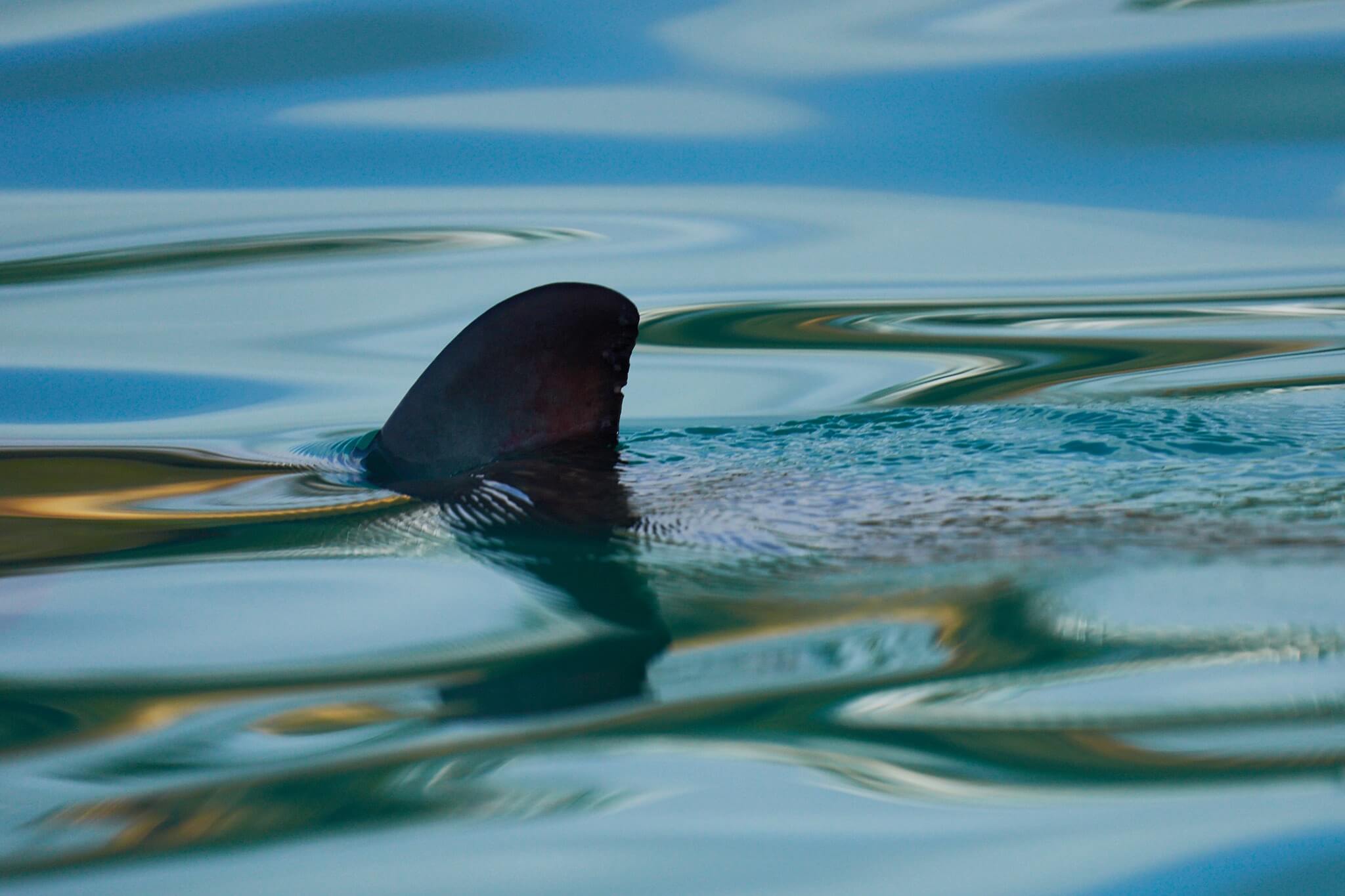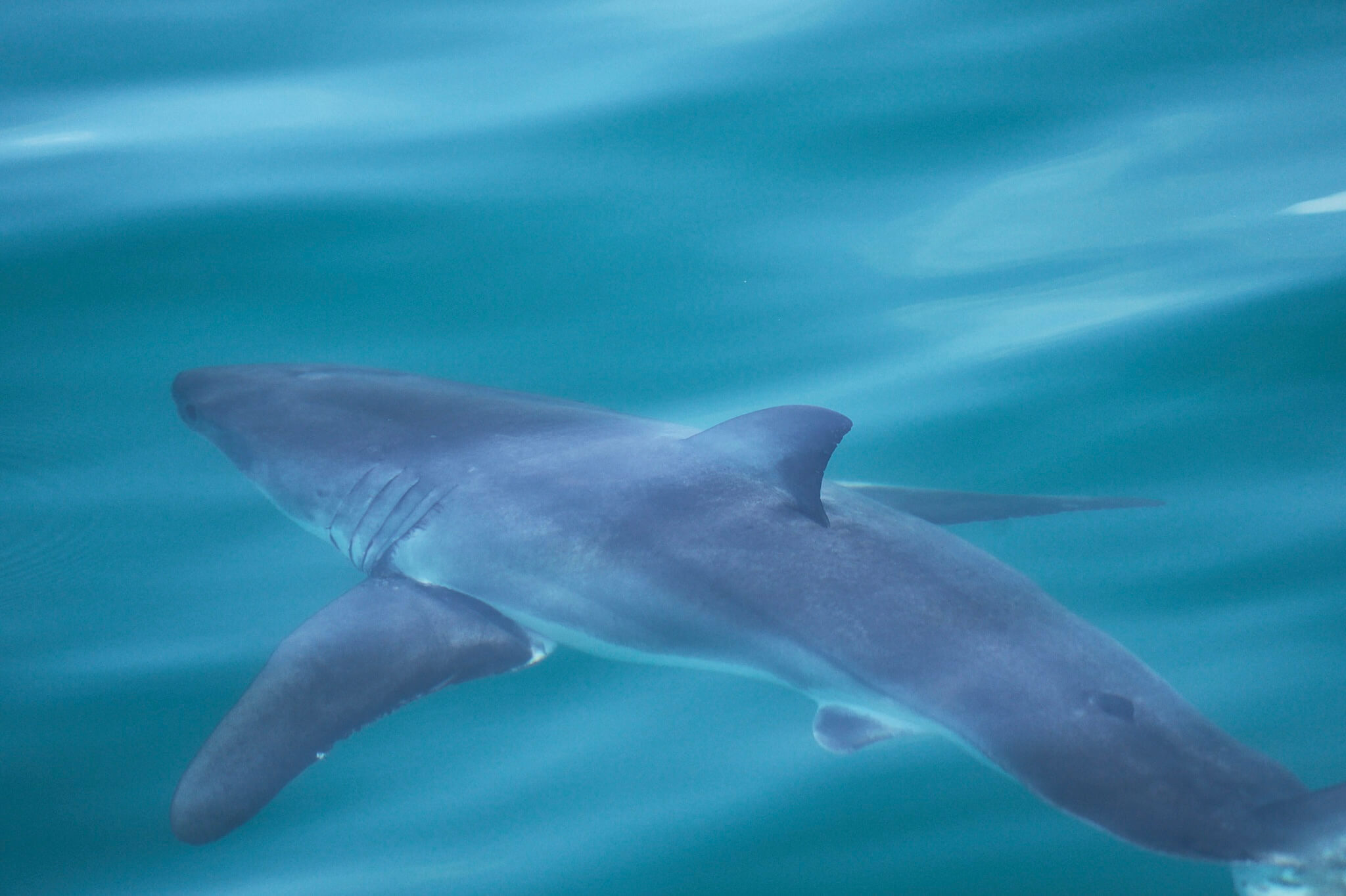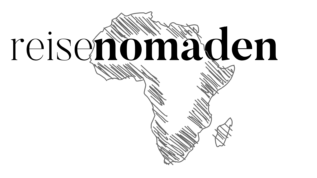June to December is whale season on the coast in the Western Cape. Different whale species come to the bays to mate or to give birth. Since the sea off the coasts is sometimes very steep, it is possible in some places, such as De Kelders or Hermanus, to observe the whales from the mainland. What you should never forget with all the marketing spectacle is the fact that this is (marine) wildlife. That means – no matter what you’re promised – you never know what you’re going to get. There is an entire industry living off the whales and great white sharks in the Western Cape. Swimming by the boat in a cage while sharks are attracted never interested us. Seeing whales, if possible humpback whales, up close and hoping for some interaction coming from them, however, did. So, as already written, we booked a whale tour in Plettenberg Bay at Ocean Safaris.
We start at 09:00: do we find the whales?
We were on time at Ocean Safaris and started our adventure in a small group. There were seven of us in total! The morning was unfortunately hazy and so it was a very big challenge to be able to recognize the small fog that whales blow into the air when exhaling. One observer sat on top of a hill near the lighthouse with binoculars and tried to spot whales and give his colleagues a hint by radio. We drove along the coast, bordering the open sea and saw: Nothing!
The seals must fix it
The mood was not very good. It was cold and windy, the weather was not really good and we drove over the Indian Ocean and saw nothing. Welcome to the nature! Sonja and I don’t like it either when this happens but we can live with it and find the principle basically right and good. It is not a zoo – no matter what the marketing says. The captain steers the small boat confidently to the coast near the rocks and before we know it we are surrounded by hundreds of seals. More and more appear on the rocks. There is a colony living here and this is the safe bank! If nothing goes – the seals are always going.
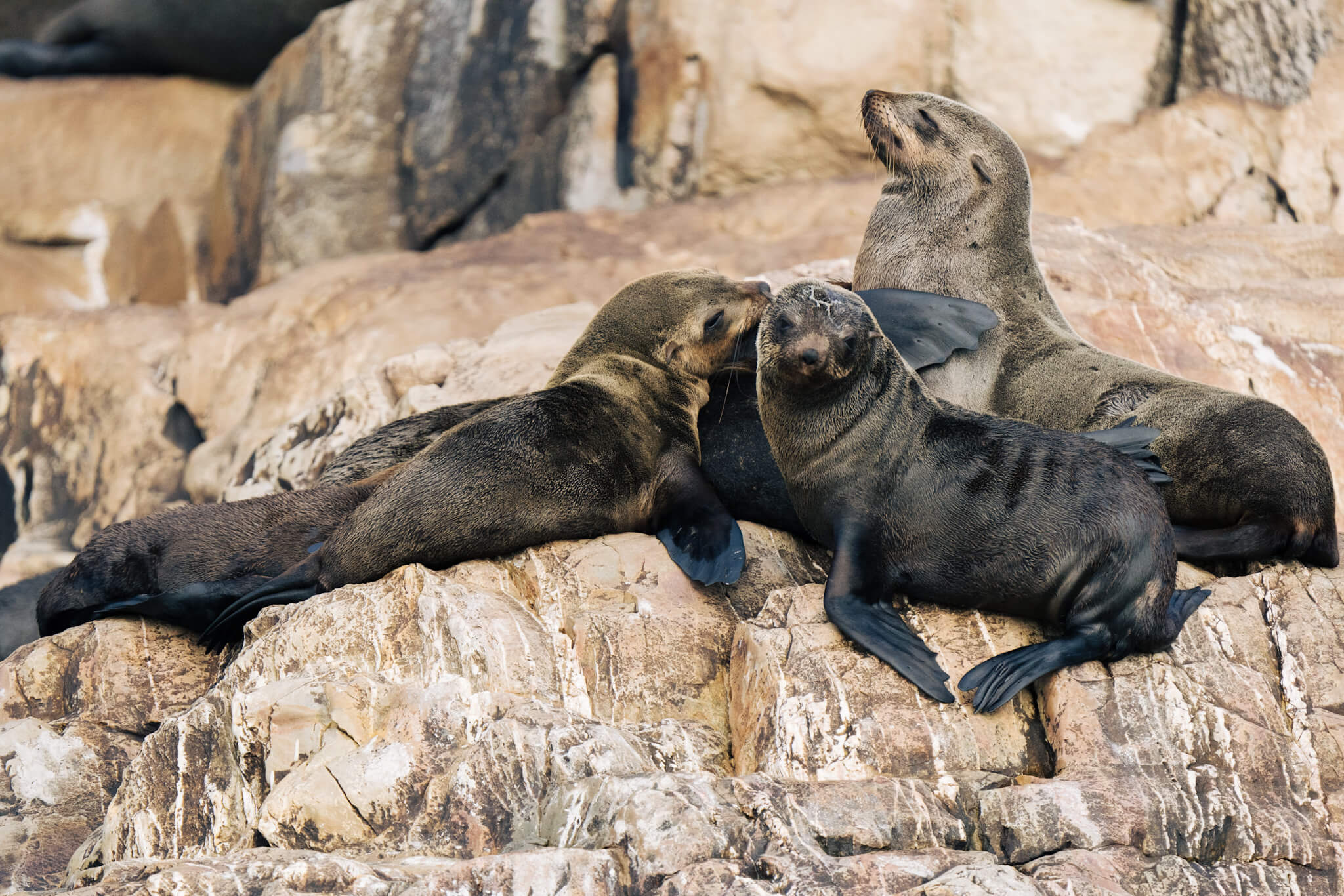
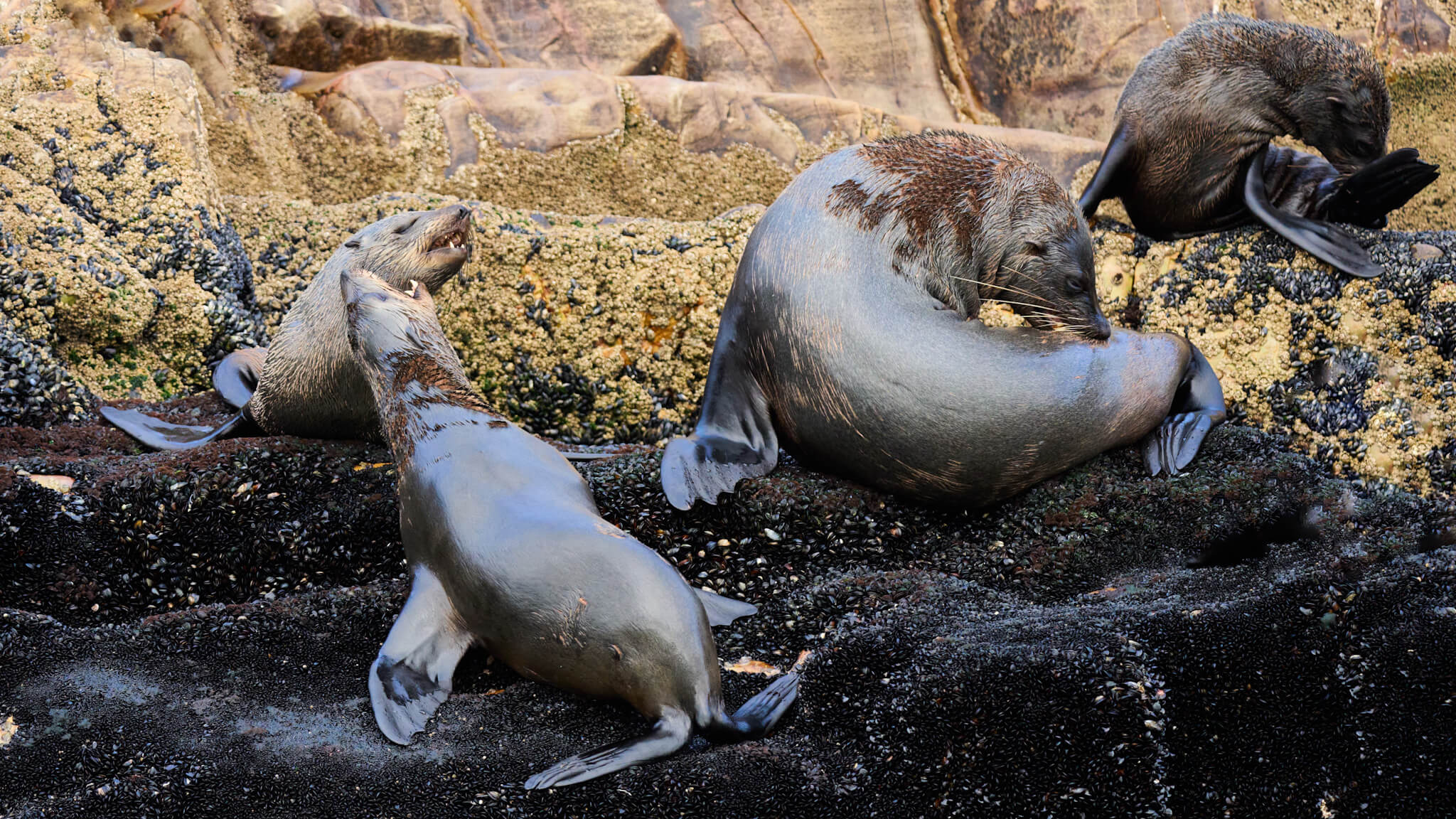
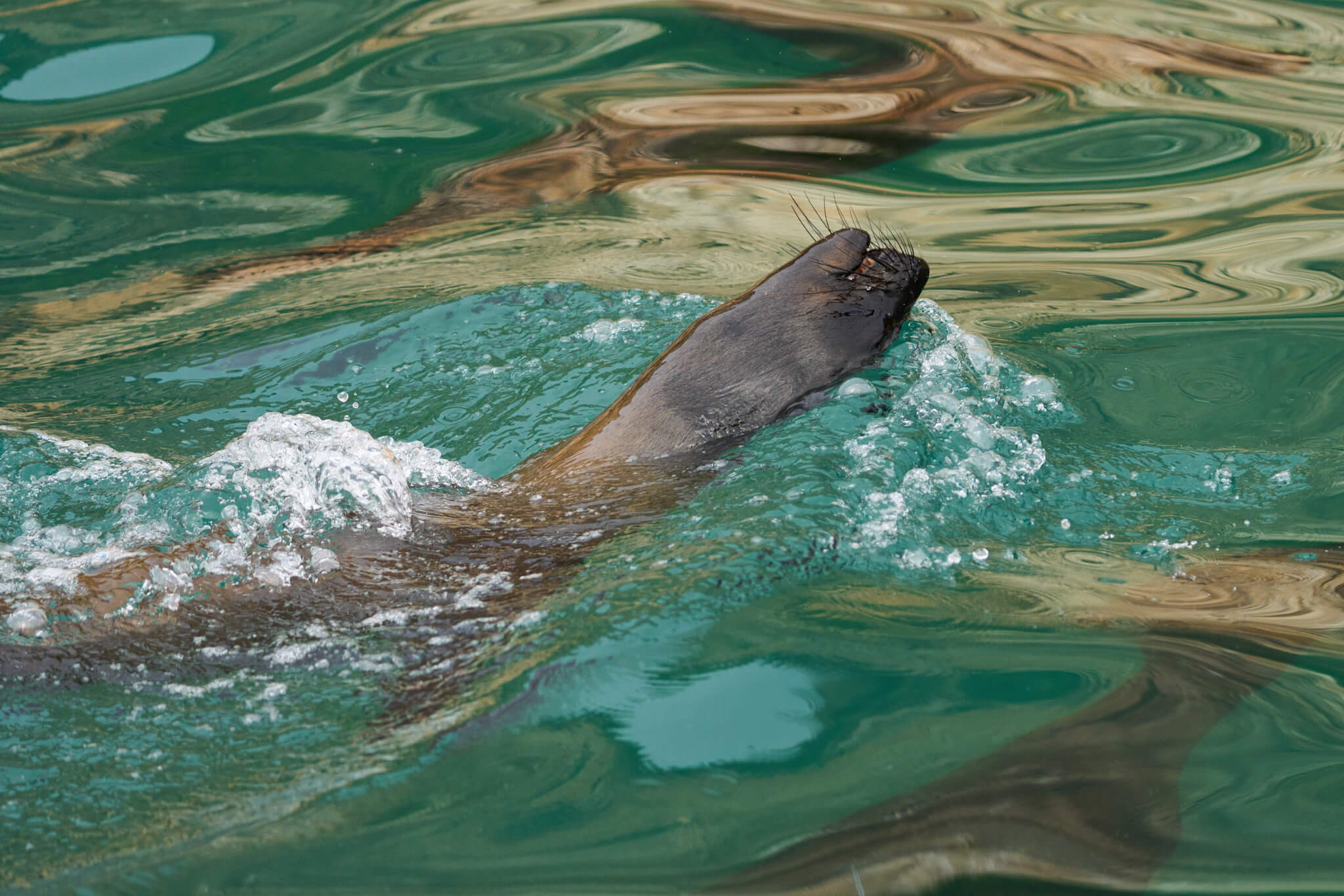
Surprise on the way to the bay
When we continue after appx 15 minutes and slowly despair is spreading among the crew, three humpback dolphins swim in front of us. One alone and a mother with her calf in some distance. This species of dolphin is endangered and they are constantly on the move and have a habit of spending long stretches underwater, so there is no uniformly recognizable movement and rhythm, which makes photography very difficult. They are only above water for a short time and then you have no real idea where they will surface. As we leave them, it’s clear that that’s it now.
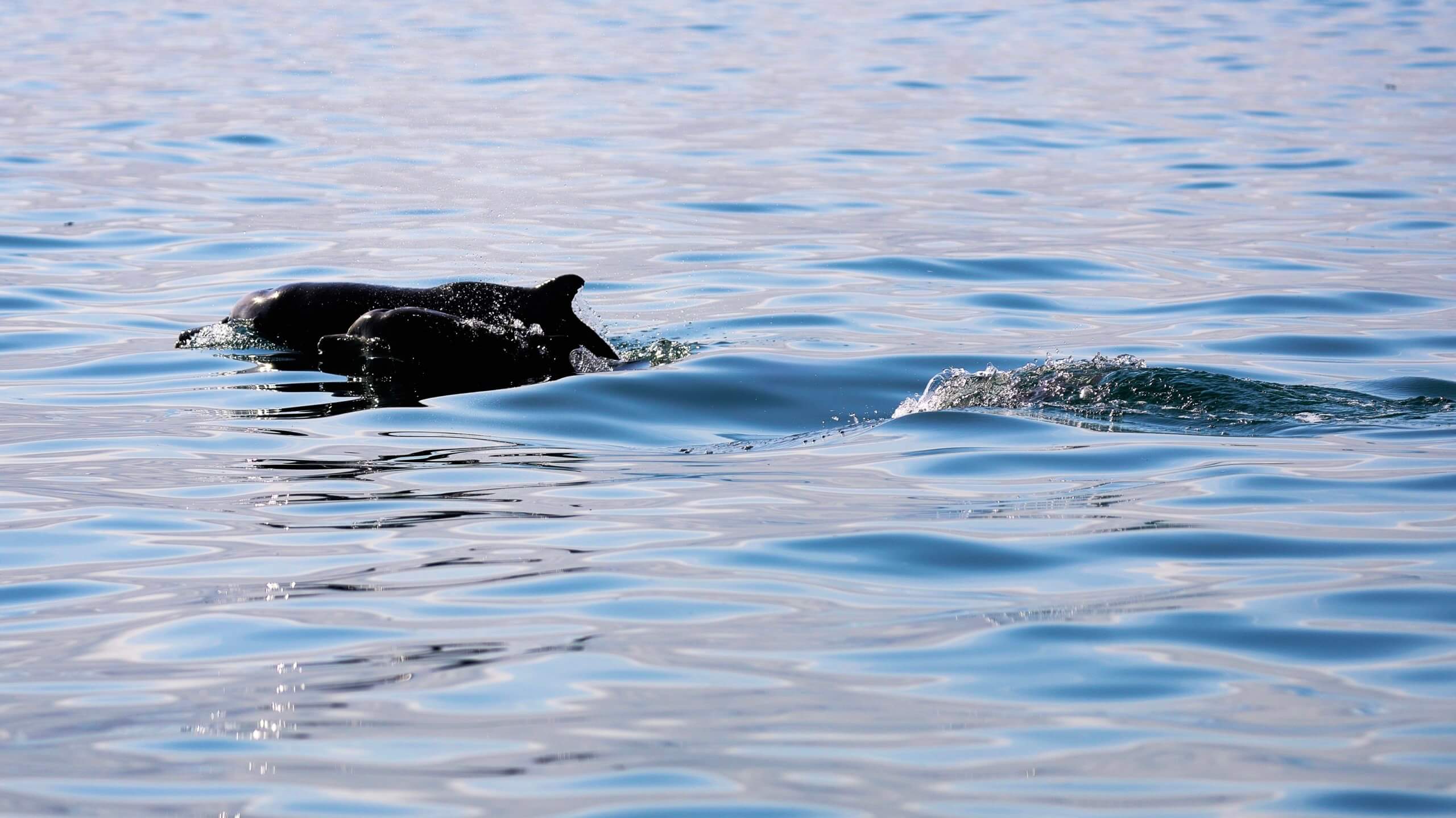
AY juvenile great white shark
The captain heads towards the beach and just explains to us how uncomfortable they are that they did not succeed in finding whales. After consulting with the office, we get the offer to join a second tour free of charge. We are all still quite perplexed when a shark fin appears in front of the boat. It is not just any shark, but a juvenile great white shark. He swims curiously around our boat and the search for the big mother is in vain. The beach is estimated 50 meters away. We spend some time with the small shark before we return and drive the boat at high speed onto the beach. We get out and suddenly realize that our dream has been shattered. This is wildlife – you never know what you get.
